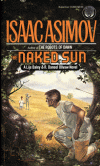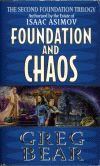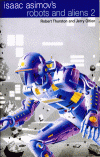This is the second book in the Robot Novel series by Asimov. A year has passed since The Caves of Steel. Lije Baley is summoned once again to solve a murder. The Department of Justice received a request from the Spacers asking specifically for Baley’s help with the case. This time the murder is not on Earth, but on the 50th Spacer world, Solaria.
Solaria is probably as close to the exact opposite of Earth as you can get. The entire population of Solaria is about 20,000 spread throughout evenly distributed estates. There are thousands of robots for each person and most contact between people, even husband and wife, is done through a trimensional connection that is indistinguishable from normal sight. The main problem Baley has to solve is how a person surrounded by robots could have been murdered, with no weapon to be found.
Much of this novel follows the same pace and deductive reasoning as seen in The Caves of Steel. Just like with futuristic Earth, this newly settled planet Solaria is unique. Asimov creates another new culture which has its own quirks just like he did with future Earthmen. Elijah must face is extreme agoraphobia, and Gladia must confront the Solarian fear of interpersonal contact. These Solarians represent what can possibly happen when dependence on robots is taken to extremes. Also, we get to see the developing relationship between Elijah and Daneel. Note: There are several scenes in this book that I’d rate PG-13, so anyone reading this should be warned.



